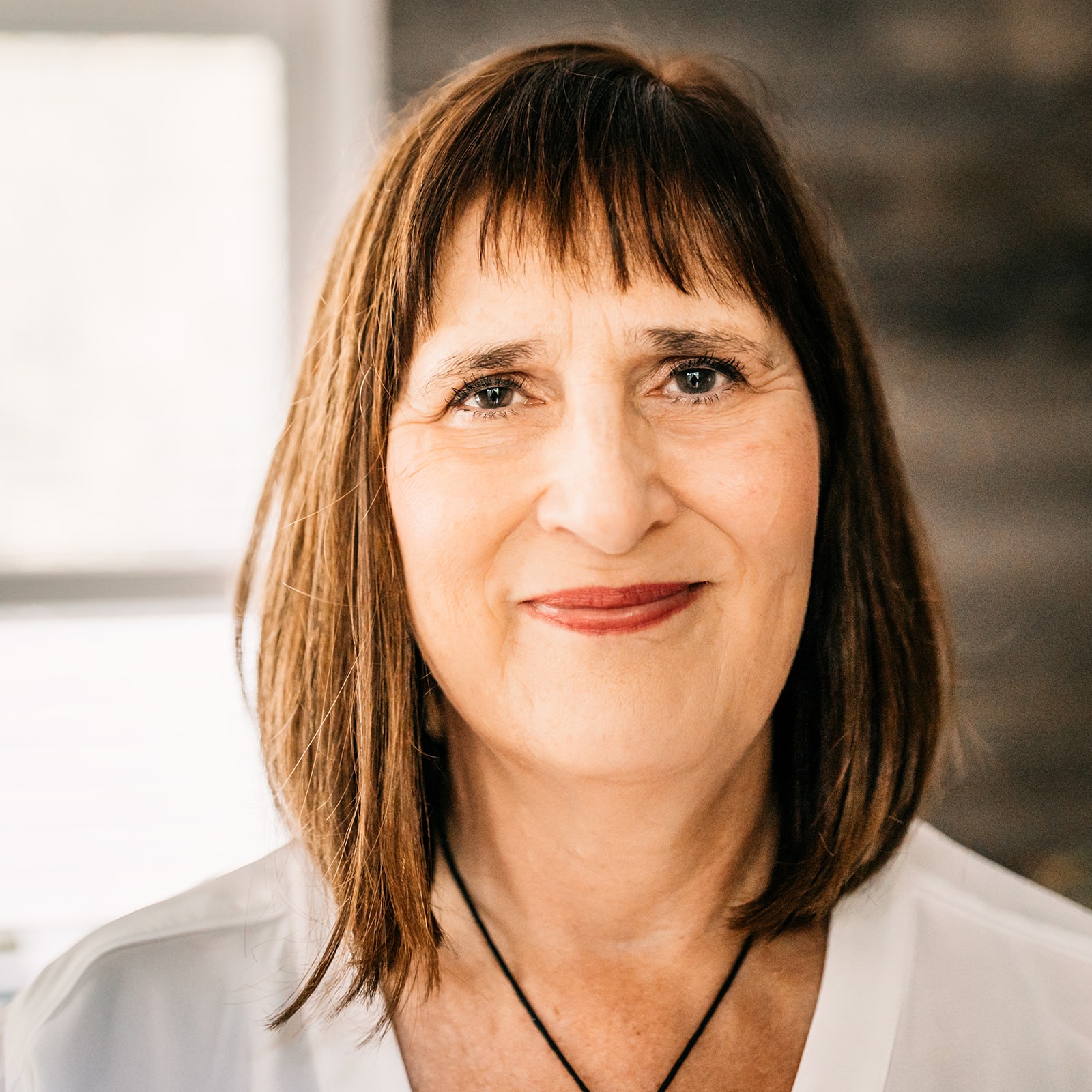We caught up with the brilliant and insightful Carol Banens a few weeks ago and have shared our conversation below.
Carol, thanks for joining us, excited to have you contributing your stories and insights. Was there a moment in your career that meaningfully altered your trajectory? If so, we’d love to hear the backstory.
I was a physical therapist for 36 years. My husband died in 2018 and I continued to practice for 3 more years until I realized something had to change. I no longer could cope helping people in their chronic pain, I was burned out from pretending to be ‘fine’ and so I took myself away for 5 days , journaled and thought about ‘what next?’ and decided to become and coach and leave my career. I started as a pain coach, because that’s what I knew, then a midlife women’s coach to help them find joy( because I’d lost mine and was still searching) to finally end up being a grief coach and educator, which is the exact right place for me to be. From here I wrote my first book of grief poetry ‘Kintsugi Your Heart: The Art Of Living With Grief’. So the defining moment was my husband’s death, but it took me a while to acknowledge that things were different, that I was different and that it was time for a change. The lesson I’ve learned is that there can be growth through grief, that life goes on and it can still have meaning, and joy… and that the grief journeys along with you but no longer defines you…. Sorry a few lessons here!
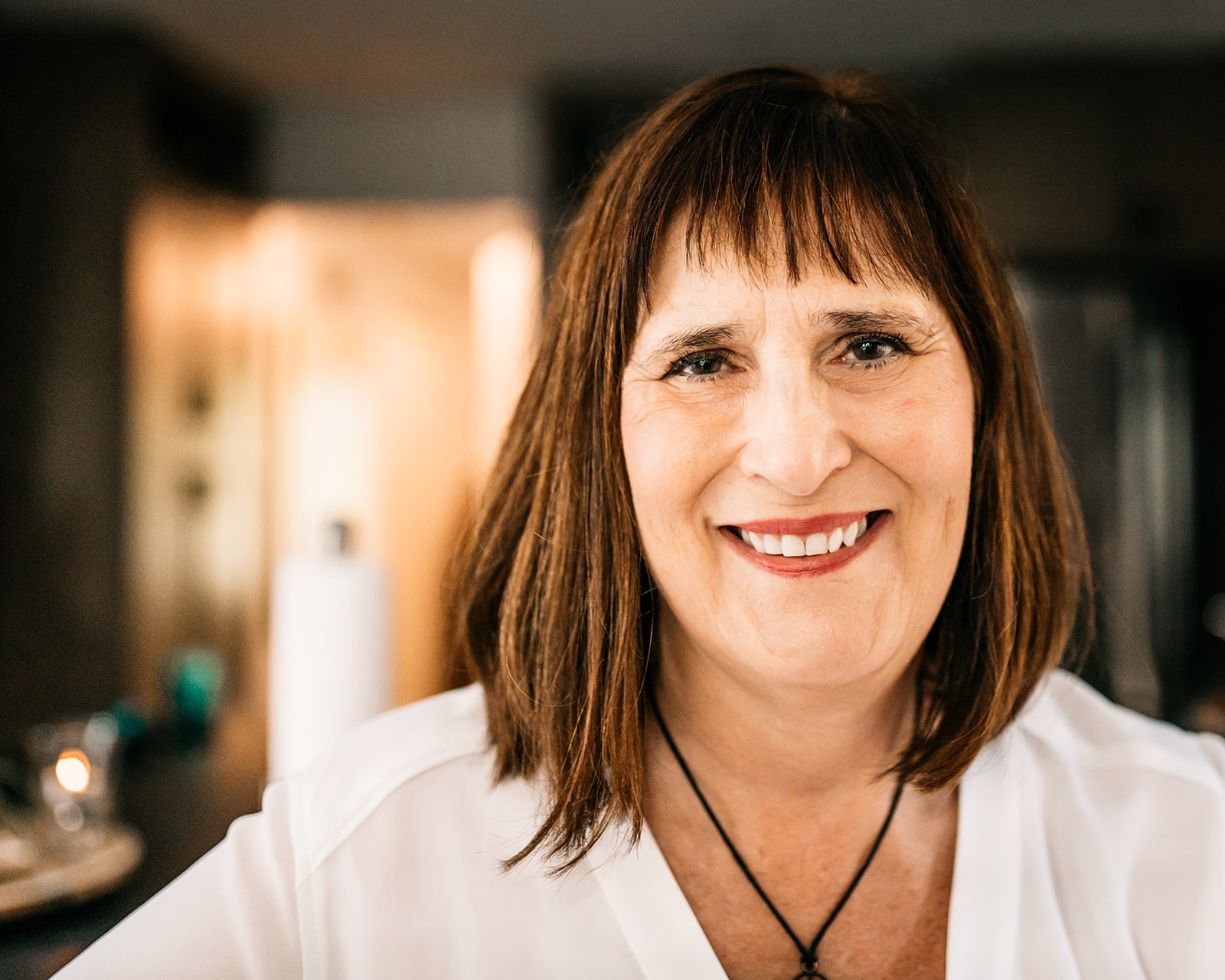
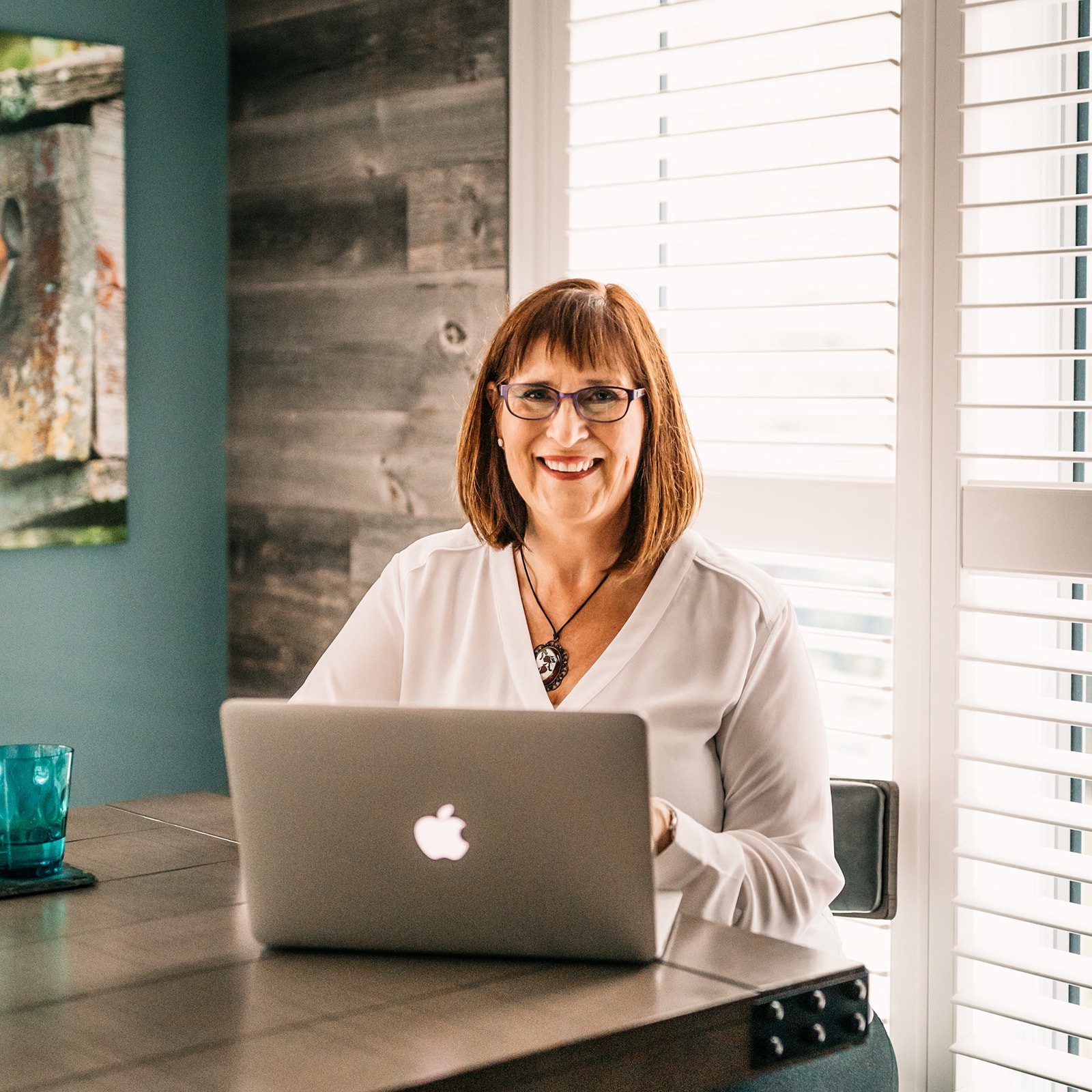
Awesome – so before we get into the rest of our questions, can you briefly introduce yourself to our readers.
I never wanted to be a grief coach, it is not something you aspire to, and I loved being a physical therapist. But when my husband died in 2018, I didn’t cope well with my grief. I went back to work 3 days after his funeral, put on a brave face, and figured ‘time would heal’. It didn’t . 3 years later I had burned out and made the decision to leave a career that I really had been passionate about. I took lots of coaching courses and finally become and certified grief coach and certified grief educator. I now help widows and widowers go from surviving to thriving in grief.
One of the things I learned from my grief experience was that you can’t run from your grief. You can’t hide from it, or shove it away. It has to be felt and expressed so that it doesn’t come back at a later date, unresolved and causing both physical and mental problems.
I now coach people 1:1 for 3 or 6 months depending on their needs and have a 90 day programme’Grief: From Surviving To Thriving’. Here you are able to share your grief, have it witnessed, learn how to deal with emotions, come to a place where the grief no longer defines you, and find hope that there is life after loss, that it can be meaningful and that you can experience joy again.
When I was grieving I thought I could do it alone. I couldn’t. I thought reading books would be enough to tell me what to do. It wasn’t. And so I want to open up the grief conversation so that people know it is normal and natural. I want to help grievers navigate the wilderness of grief with compassion and understanding, and know that they are not alone.
This year I released my first book:’Kintsugi Your Heart: The Art Of Living With Grief’. This came about from my having spent 4 years not allowing myself to truly feel all those grief emotions. They were bottled up inside me and when I finally gave myself permission to feel them, they came out in the form of poems. I had never written poetry before and so it was a total surprise to me… and a delight. I am so proud of this accomplishment and am enjoying all the positive feedback from readers telling me how it has helped them in their grief.
Having had a background in physical therapy and in particular chronic pain, it has given me a wonderful foundation for my coaching. I easily connect with those I am with, am a good listener and am able to reframe difficult situations so that the client can tweak the way they are perceiving things. Being a widow myself allows me to connect deeply with my clients. They know that I know what it is like. That I have felt the pain and sorrow, and they can see that I have recreated my life despite all of that and am able to be happy. If you haven’t lost a significant other then it is hard to truly understand the depth of pain and the profound effect grief has on every aspect of your life. I had no idea until I lost my husband… now unfortunately I do.
One of the things I do with my clients is take them through a 6 step process I developed called CHOOSE. Choose to give yourself permission to grieve, Honour your loved one, Openly Mourn, Open to acceptance and gratitude, Seek a new identity, Embrace the future. With these overarching topics we journey though the grief together, seeing the commonality and the differences.
Grief is a hard journey to take alone. It is best shared and expressed, and through my coaching I take my clients by the hand and lead them gently forwards back toward life.
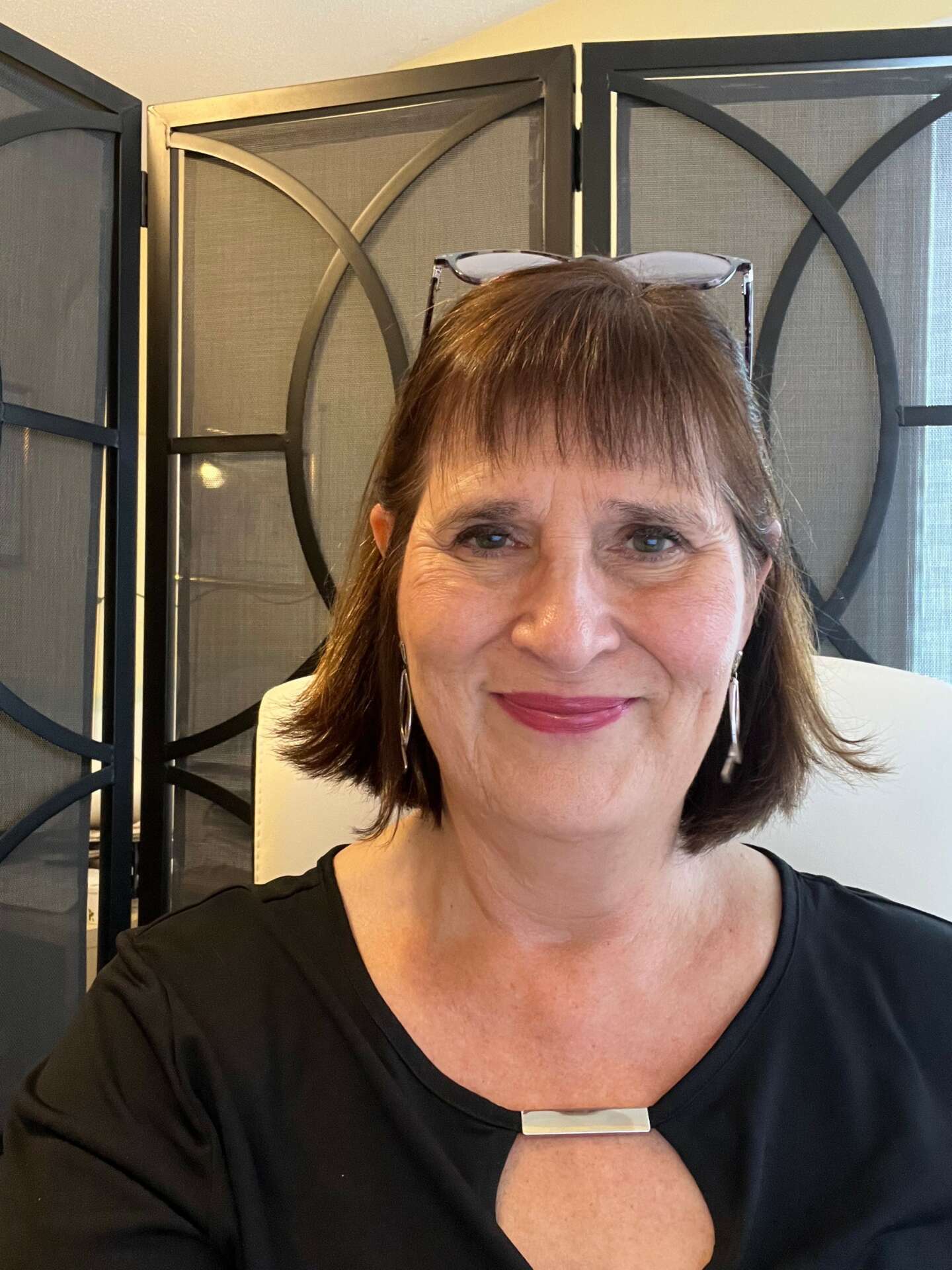
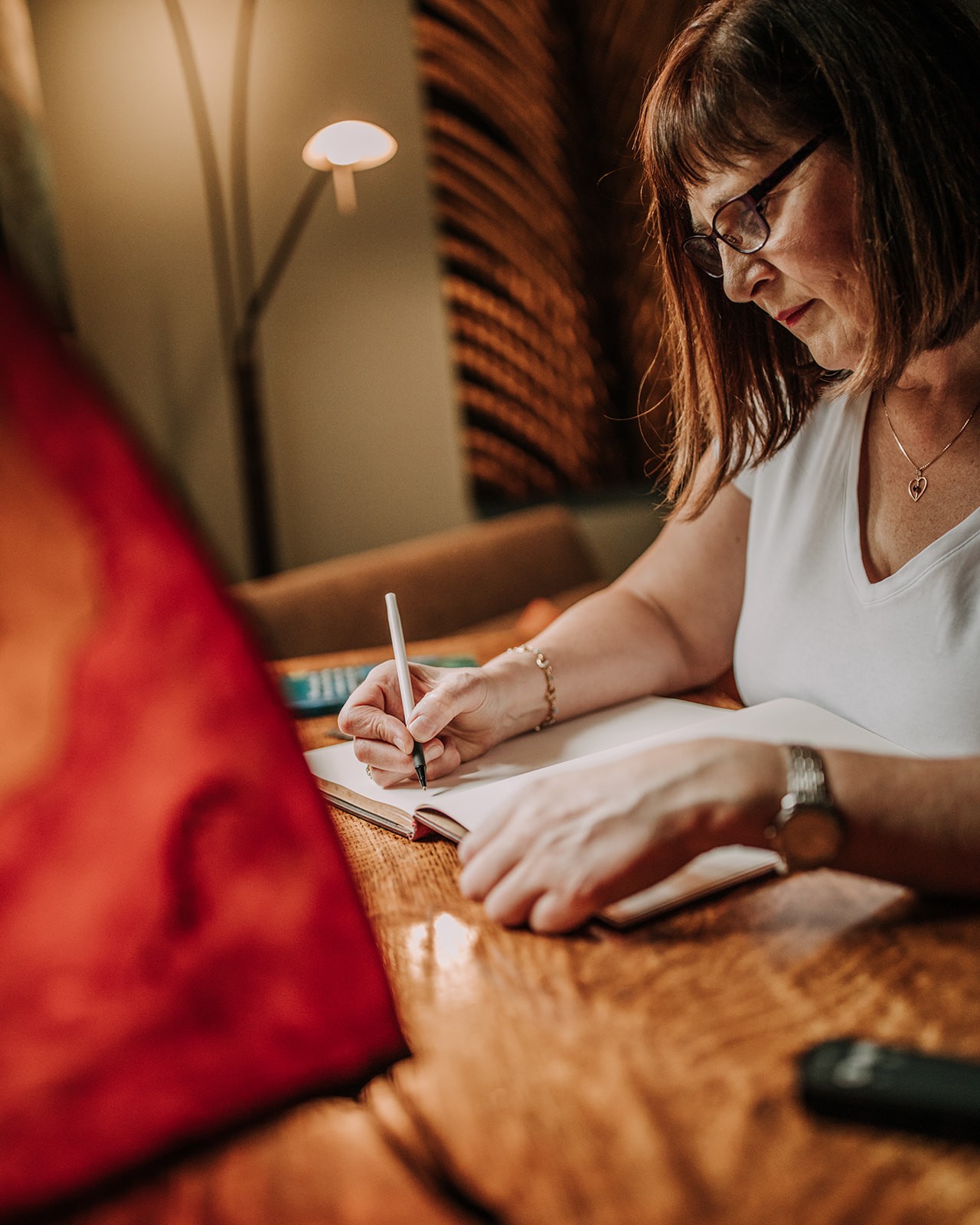
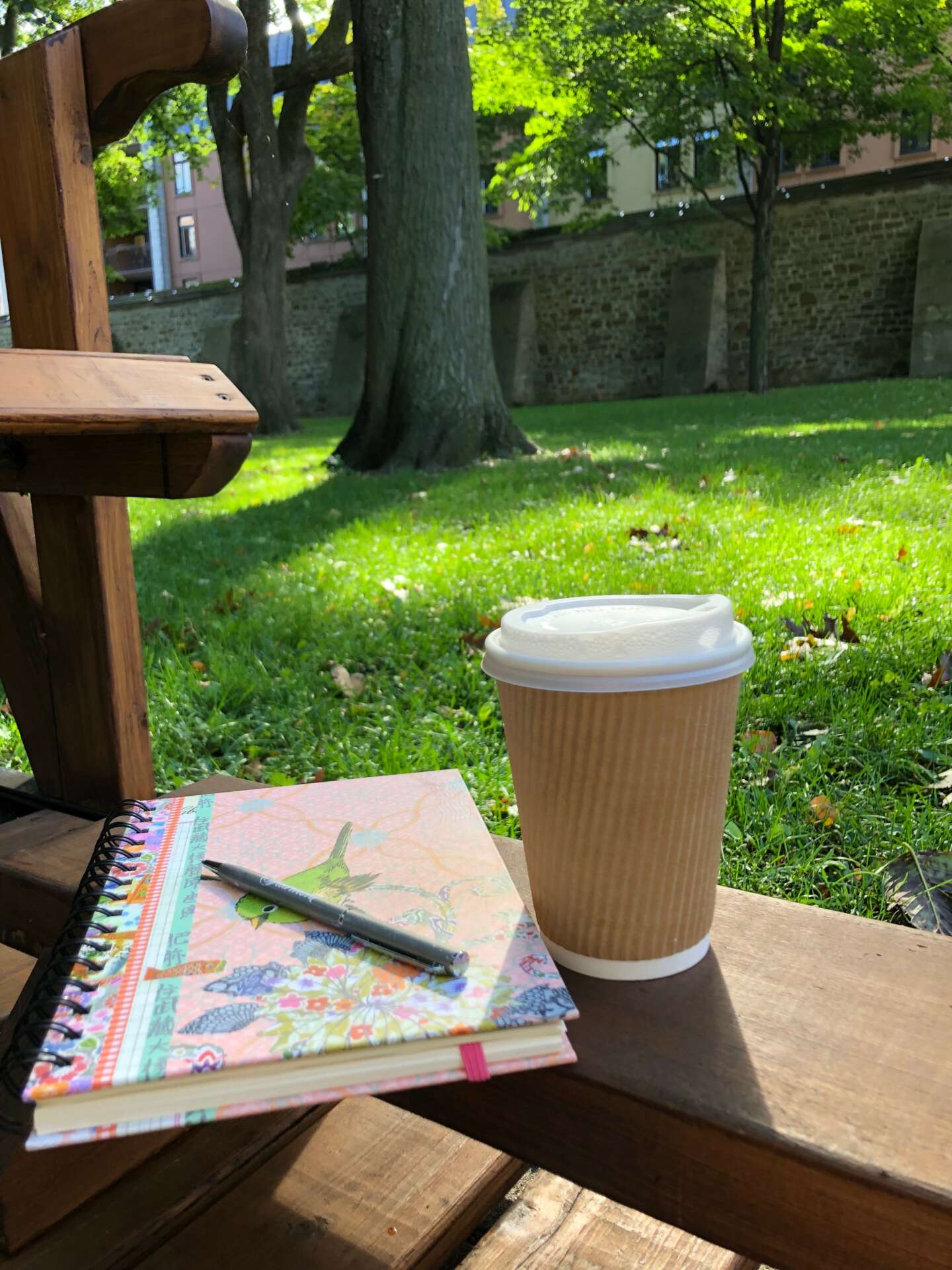
What’s a lesson you had to unlearn and what’s the backstory?
The lesson I had to unlearn was ‘To be strong, keep a stiff upper lip’, and not talk about your grief. When I was 9 years old, my sister Susie died in an accident. After we’d all been told, there was no more mention of her name, no funeral and no memorial. In fact it wasn’t until 30 years later at my Dad’s funeral that I heard more details from one of his friends.
First, I have no judgement on my parents. They were crushed and didn’t know how to deal with their grief. In England we really did keep problems to ourselves and just carried on.
The problem is the way we are brought up, and the way things are modelled or told will affect the way we grieve.
So in my subconscious mind when my husband died I had to keep going, not get emotional, carry on… and I tried to… and it didn’t work!
But now I know this is not an effective way to deal with grief. That grief is normal and natural and should be expressed and heard. I wish that my parents could’ve done that. I wish they had been able to talk about my sister and keep her spirit alive.
I made a very conscious effort at least with the talking part, to always talk about Brian and to share stories with others. This helped me to keep him near to my heart. What I didn’t do was to allow myself to feel the deep pain that I felt. I pushed it down and had to learn that in order to start truly processing my grief, I had to feel it to heal it. This led to depression and burn out until I sought help.
The lesson… give yourself permission to feel the emotions, allow them, acknowledge them, share them, talk about them… and as you do that they’ll slowly but gradually soften and not define your every moment.
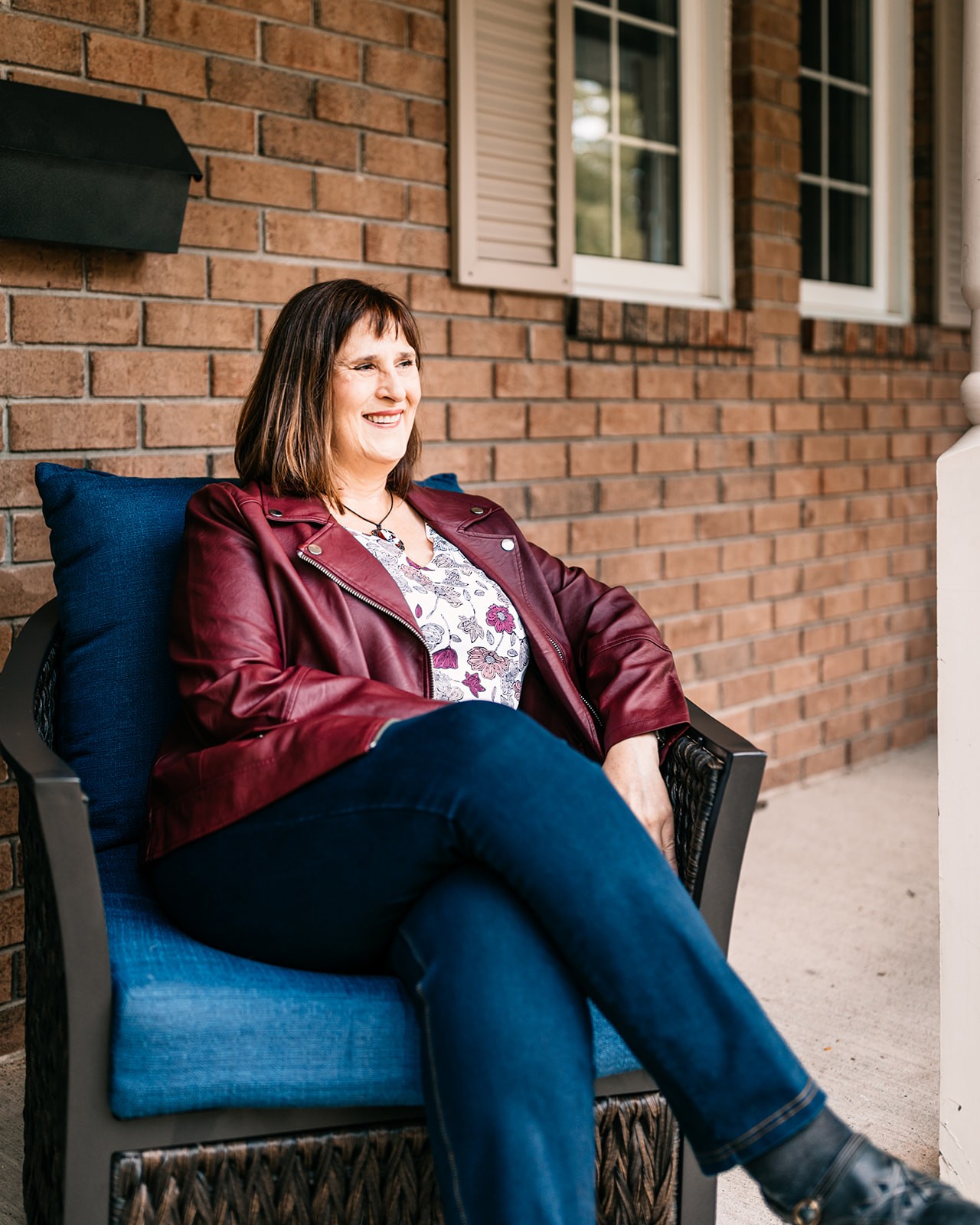
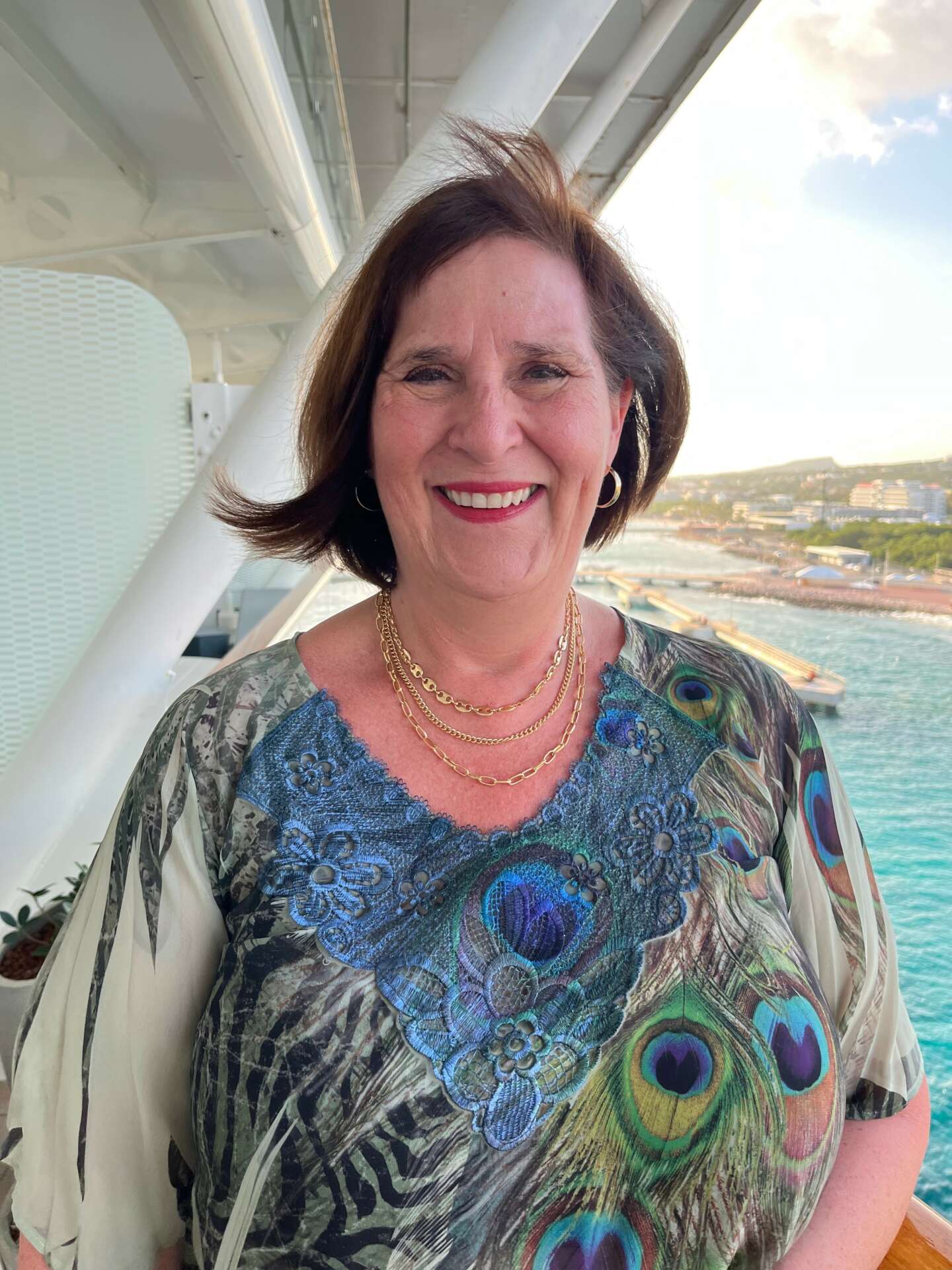
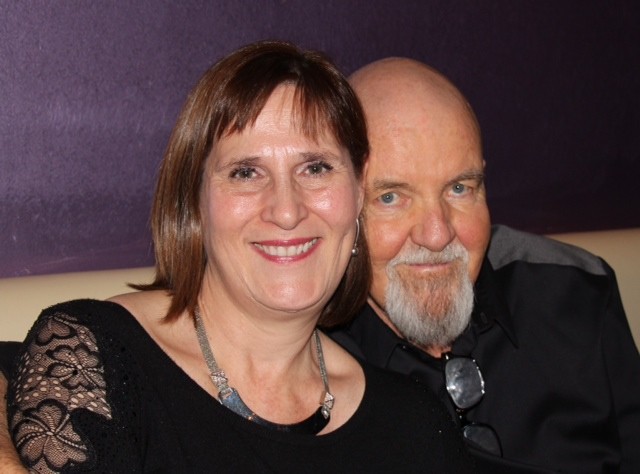
Let’s talk about resilience next – do you have a story you can share with us?
Making the decision to leave my career as a physical therapist was a tough one. But once decided I did it. I was going to be a coach. When you are on social media this seems like it is a pretty easy transition, but it wasn’t.
I hired my own coaches, did course after course, got certified in grief coaching and as a grief educator, life coaching, mindset coaching and kept adding more qualifications. But… that was not enough. To be an online coach I had to develop a social media presence and this has been for me more challenging. My coach said ‘go live on Facebook weekly’, which I did. After every Facebook live I would feel sick thinking about what I’d talk about the following week. I’d spend the week planning a 5 -10 minute live video. And the clients didn’t come! This was as a pain coach.
I pivoted to becoming a midlife women’s coach, again doing these Facebook lives , but not posting consistently. Still barely any clients. The question was… should I continue to try and build a coaching business or go back to physical therapy?
I decided to stick with the coaching, mainly because I felt that I’d arrived at the right place… grief coaching. This I felt deeply about because I had lived with the grief. I knew how to connect with people more easily and so I stuck with the coaching despite 2 years of struggle so that I could help others in grief navigate their journey with a little more ease.
Keeping going when it doesn’t seem like you are making any headway is tough, a bit like the grief journey to be honest, but I know that I wanted to coach people in grief and so sticking with it was important to me.
Contact Info:
- Website: www.carolbanens.com
- Instagram: https://www.instagram.com/carol.banens/
- Facebook: https://www.facebook.com/carol.banens/
- Linkedin: https://www.linkedin.com/in/carol-banens-6a575432/
Image Credits
Of Wild Dawn Photography- Ottawa Ontario_ Crystal Dawn Cook-6475-2.jpg Of Wild Dawn Photography- Ottawa Ontario_ Crystal Dawn Cook-6326.jpg Of Wild Dawn Photography- Ottawa Ontario_ Crystal Dawn Cook-6287.jpg Of Wild Dawn Photography- Ottawa Ontario_ Crystal Dawn Cook-6478.jpg Of Wild Dawn Photography- Ottawa Ontario_ Crystal Dawn Cook-6232.jpg


